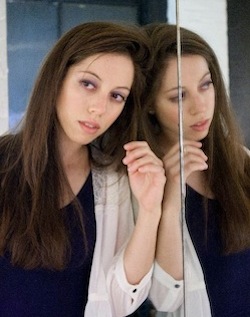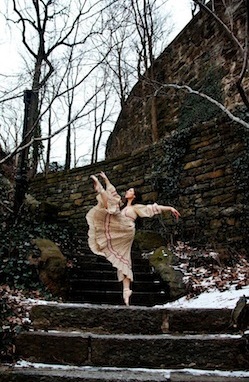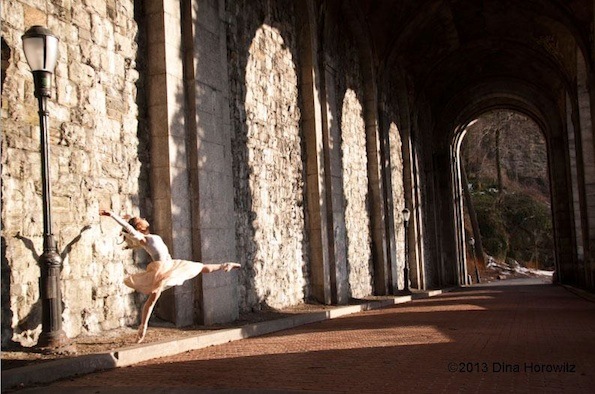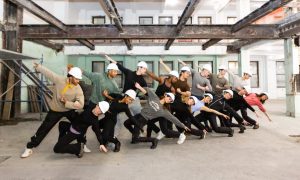By Leigh Schanfein.
One summer, when I was working at a large dance school, I noticed that a Summer Intensive student never came in for Saturday classes. I thought it strange, and wondered why he would be allowed to miss, or perhaps wanted to miss, the weekend offerings. I found out that the student did not come to Saturday class and would not be participating in the Summer Intensive’s culmination performance because he observed the Sabbath.
The Sabbath is a day of rest or worship commonly practiced in Judaism and Christianity, as well as other religions and belief structures. In secular practice, it has gone from a day of rest to evolve into the traditional weekend, which we practice out of custom and law. In Judaism, the Sabbath (Shabbat) lasts from sundown on Friday evening to sundown on Saturday evening and is meant to be a period of rest from everyday activities (even flipping a light switch is not allowed) and time for spiritual reflection. Any performer knows how critical Friday and Saturday evenings are – these are our nights in the lights! So again I wondered, how could one reconcile the life of a dancer while observing the Sabbath?

Anna Schon. Courtesy of Anna Schon.
Anna Schon is an immensely talented dancer based in New York City. She has performed with independent choreographers, small companies and huge organizations, from Bill T. Jones/Arnie Zane Dance Company to the Metropolitan Opera at Lincoln Center. It is not only her talent, dedication and passion for dance that make her stand out, it is also her dedication to her faith. Anna is an Orthodox Jewish woman and has been her whole life; she grew up with the beliefs and practices to which she holds strongly. However, it’s not a surprise to her that hers is an intriguing life. In fact, she was featured in a February 2011 article for Dance Magazine in which she relates how dance and her faith are intertwined.
There are certain things integral to Anna’s life as an observant Orthodox Jew that more secular dancers would find difficult or even impossible to manage. For example, when observing the Sabbath, there are rules by which one must abide. What one must not do includes: use electricity, cook, carry items, drive a car or bicycle, write, create anything permanent, shower, wring out one’s hair, write, use money, barter. What one should do includes: pray in synagogue in the evening, morning and afternoon, eat a celebratory meal in the evening, morning and afternoon, sing, enjoy oneself, learn Torah with family and friends. Dance happens to be permitted and if it is contributing to the strength of one’s faith, then it is encouraged.

Anna Schon in Central Park. Photo by Dina Horowitz.
The list of dos and don’ts sounds daunting to anyone, let alone a dancer. Can’t use a vehicle? Can’t shower?! But those who observe have the passion, trust and faith to make it work in modern society and its cacophony of demands. It also takes a lot of planning. “On a Shabbat when I have a show I typically drop everything I need off at the theater on Thursday so I do not need to carry anything there on Friday night or Saturday,” says Anna. She also makes arrangements to stay overnight with someone near the theater so she will be able to walk, whether at home or on tour, and she will often have fellow dancers help with her makeup and preparations. “If I am in the theater all day, I will bring a siddur (prayer book) and all the ritual items that I need (Challah, wine, food) so that I can complete the Sabbath commandments.”
While it is possible to merge the lifestyles, it isn’t easy. Sometimes it isn’t the rituals of Shabbat for the individual that make it a challenge, it’s whether the company can accommodate the observant dancer. Anna has turned down jobs because the company’s demands were not congruent with hers. For example, she wouldn’t accept a job that would have required her to dance topless. Sometimes smaller companies are much more understanding and appreciate the commitment she has made to her religion. Others simply can’t be expected to accommodate, “With them I am merely a cog in a giant machine,” but she hasn’t had any problems with even the largest companies yet. Ultimately, it comes down to her expectations of herself and her art, “…In the end, I am happy with my decision,” she explains. “It is important that I stay true to my beliefs, as they are a part of me and therefore influence my art.”
The life of a dancer is already one that demands dedication, and so is the life of someone of strict religious observance. Can the two be reconciled and fruitful? When I asked Anna if observant dancers should be discouraged from pursuing a professional career she replied, “If you really want to perform and it is how you express yourself you should follow your dream. If you don’t, you will end up resenting your religion for taking away something that is so important to you… it is a very difficult lifestyle to maintain and not for someone who isn’t extremely passionate about his or her art form.” Which sounds about right for the passion required for dance anyway. If you want it, you must make it happen.
Photo (top): Anna Schon in Central Park. Photo (c) Dina Horowitz.















